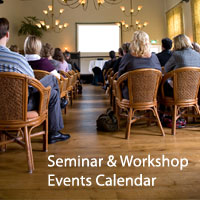Becoming the master of your wellbeing is THE ART OF HEALTH
Main Menu:

Specialist Treatments

Groundbreaking Services
The Art of Health offers cutting edge information and strategies for understanding the workings of the human mind and body. Consultations, Seminars, Online Teleseminars, Free Advice and Inspiration helping you to reunite body, mind and spirit...

Mickel Therapy
Mickel Therapy is a specialist talking therapy designed to identify the cause of chronic conditions such as anxiety, insomnia, chronic fatigue, adrenal exhaustion, fibromyalgia, stress and depression. Plus it gives you the tools to heal...

Qi Gong and Meditation
Qi Gong and meditation calm the mind, relax the body, increase flexibility, improve focus, prevent and heal illness. The gentle exercises are simple, effective and easy to learn...

Newsletter Sign Up
Keep up to date with Art of Health events
Contact Art of Health:
021 410 633 / 09 833 6553
info "at" artofhealth.co.nz
Qi Gong makes it to the mainsteam
in Womans Day Magazine
Follow the Art of Health on Twitter
Join the Art of Health on Facebook
Art of Health Teleseminars Facebook page
Article: Stress - the myths, the facts

"To see ones predicament clearly is the first step toward going beyond it."
Eckhart Tolle
Enlightened Teacher
Is stress really good for you?
by Kim Knight, Business Today Magazine, June/July 2010

STRESS: the myth... the facts
Stress seems to be an epidemic. Just one arm of this is in the workplace, where apparently both employees and employers are turning to drugs and alcohol in an effort to reduce feelings of overwhelm, isolation and despair - the emotional symptoms of stress.
Physiologically, stress is the ‘fight-flight’ – or ‘sympathetic nervous response’ - of the body. This system is designed to come on-line for emergencies and danger, for example, to run out of a burning house or jump away from an oncoming bus. When our body is in sympathetic mode all internal systems adapt for survival: eg, heart rate and breathing alter, digestion and elimination halt and blood is re-directed from the internal organs to the limbs for mobility.
And here’s the thing about the stress mode: it’s designed to be short-term. When the danger is over, we are meant to return to our normal and natural state of calm and relaxation. (Yes, you read that correctly, ‘our normal and natural state of calm and relaxation’ – more about that later). But here’s the problem: most of us are living in a perpetual, constant state of stress...without even realizing it.
Stress - an internal response, our responsibility
Speaking as an ex-stress junkie, (yes, stress is an addictive behaviour), the first step in recovery is to understand that stress is the body’s internal response to either an external situation (people or events) or internal (self-induced) thoughts and habits. In other words, stress is the result of our perceptions of and responses to life.
An important factor in healing is awareness; becoming aware of what we were previously aware of. Only then can we change. Once we become aware of ourselves, we have the power to do something constructive (ie, appropriate and beneficial) rather than destructive (ie harming ourselves further with narcotics or other life-depleting behaviours). If you can stop just long enough to assess the situation before taking in more food, alcohol or drugs, you will notice that these behaviours are an attempt by the mind to cover up uncomfortable feelings of stress.
Symptoms - you body's way of helping you
So here’s a new perspective. What if symptoms of stress were your body’s way of communicating to you, of trying to get a message through? What if there were unidentified emotions underneath stress requesting change? What if you body was actually doing its job perfectly by sending stress, but you have not just yet managed to identify and translate the communication?
You’ve probably heard people say ‘I thrive on stress’ and ‘a certain amount of stress is good for you’. If this is you, you might like to re-asses this belief. According to wise sages of old, our body is designed to be in a natural state of calm and relaxation (or in medical-speak, the ‘parasympathetic nervous response’)...all the time. If you recall, when our body is in fight-flight mode, all internal systems change, which means resources are not available for normal functioning such as healthy digestion or cell repair. In short, in order for us to feel mentally calm, emotionally stable and physically well, our body needs to be in the parasympathetic mode.
An exercise to try
So here’s an exercise: For the next week start becoming aware of any personal habits or situations that create any form of tension or uncomfortable feelings in your body. For example, does putting your appointments back to back create a feeling of relaxation or tension in your body? Once you have identified the stressor, take some action to change the feeling response in your body about that situation. Eg, does putting 15 minutes in between appointments make you feel better? If it does, take some action and change this habit. And then notice the difference in your body.
When you do the right thing, the stress will reduce and you will feel better. Then of course we have to start applying this principle to everything else in our life, which takes take and commitment. But the results speak for themselves. You will find yourself thinking more clearly, emotionally much more stable, and feelings of overwhelm, despair and hopelessness will start to fade into the distance.



